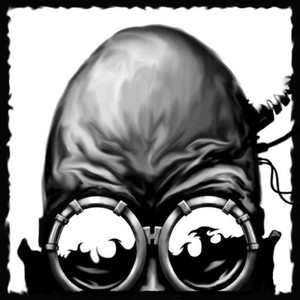A Beginner’s Toolkit for Game Development
Katherine Stull
11 / 15 / 17
‹ Back to Blog
Whether you’re looking to pursue a career in game development or simply want to start making games as a hobby, everyone has to start somewhere. Luckily, there are a wide variety of resources available that make picking up new skills more accessible than ever! After consulting some of the expert developers at our studio, we’ve compiled a list of skills and helpful tools for beginners on a budget.
2D artists
- Gimp and Paintstorm are great free painting programs for beginners.
- Pyxel Edit is an inexpensive pixel art software with many tutorials available.
- Watch Youtube tutorials! It’s a great way to learn processes and artists will often link to the programs and brushes that they use in their tutorials.
3D artists
- Blender 3D is an excellent open-source modeling tool that’s free to use! It can be tricky at first, but there are many tutorials available online.
- Polycount is an online community dedicated to artists sharing their work and helping other artists that can be a great place to find resources. A complete list can be found here.
Animators
- Blender 3D can also be used to animate your 3D models, and is free!
- Pyxel Edit allows you to easily animate 2D pixel sprites. Check out our basic Pyxel Edit animation tutorial here!
Game designers
- Read The Art of Game Design: A Book of Lenses by Jesse Schell.
- Play games! Dissect the games that you enjoy and figure out what makes them fun.Be able to identify the specifics of what makes a game good or bad after playing it.
Producers
- Microsoft Office Suite, being comfortable working with spreadsheets.
- Familiarize yourself with project management tools like Base Camp or Redmine.
- Check out Adobe Creative Cloud tools if you’re able (especially InDesign and Photoshop). There are discounts available for students.
Programmers
- Codeacademy is a great way to learn the fundamentals of programming for free.
- Unity is a free game engine that has a great library of tutorials. It’s a good idea to start with downloading one of their free projects first, explore how it works, and try to make small changes to it.
Level Designer
- Practice flow design / blockout. This is creating raw spaces, without their “art” detail. Find games that include editors and work in them. You can also use vanilla Unity, Unreal Engine, etc., but you need a purpose to your layout, so making it work for an existing game is useful.
- Learn some scripting. From making triggers work (operating lifts, spawning enemies, etc.) to more complicated level behavior, that’s scripting. It often takes the form of a mix of in-world objects and coding.
- Polish your art skills. On many projects, level designers do lighting, fog, post-processing, and all that jazz, at least initially. Play with these and try drastic experiments. Set-dressing, often done by separate teams, is still a useful art for a level designer, which is placing existing models to “make” the world to whatever look you’re after.
- It’s hard to advise how to develop an aesthetic, but study what makes things out in the world compelling, and study games/screenshots that look good and figure out why, outside of graphic fidelity, they look good.
Game Marketers & Community Managers
- Steam Spy is a great place to look at how other games are performing and understand market trends.
- NoScope.io is an analytics tool for Twitch that is useful for discovering influencers, forming a competitive analysis, and doing research.
- Keep up to date with gaming news and trends by following games journalism outlets like Polygon or IGN.
- Pick a game you love and get involved in its community forums. Interacting with a community on a fan-level is an excellent transition into managing a community as a developer.
QA Testers
- The more the better! Being a jack-of-all-trades is helpful as you identify what can be improved about each aspect of the game, so it doesn’t hurt to know a programming language or two and have an understanding of the game’s engine.
- Get accustomed to repetition - playing a game is very different than testing one.
- Develop your communication skills as much as possible. Practice being able to identify a problem and accurately communicate the problem to someone else.
We’ll continue to post resources in our blog posts, so stay tuned! In the meantime, what are some of your favorite tools for beginners? Let us know in the comments!

